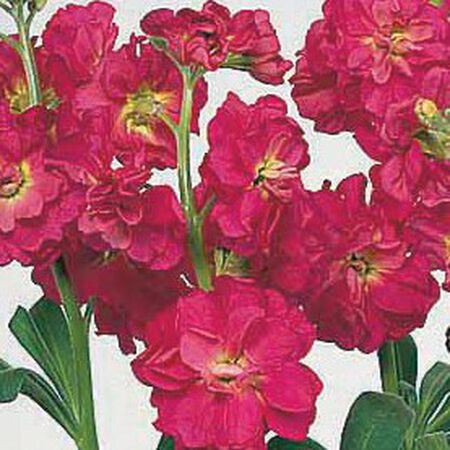Red Quartet, Stock Seeds
Key Attributes
Key Attributes
Product Details
Weight
0.01Depth
0.15Height
4.5Width
3.25Plant Height
22-32"Botanical Name
Matthiola incanaSeed Type
SeedSeeds Per Gram
550Seeds Per Pound
249,600Packet
50 SeedsSow Depth
1/8"Seeds Per Ounce
15,600Breed
Open-pollinatedSun
Full Sun / Partial ShadeGrowing Conditions
Greenhouse ProductionUses
Cut Flowers, Edible FoliageLife Cycle
AnnualSow Method
Indoor SowCategories
FlowersDays To Maturity (# Days)
85Components
Growing Instructions
Shipping Schedule
Our Seed Promise
 "Agriculture and seeds" provide the basis upon which our lives depend. We must protect this foundation as a safe and genetically stable source for future generations. For the benefit of all farmers, gardeners and consumers who want an alternative, we pledge that we do not knowingly buy or sell genetically engineered seeds or plants.
"Agriculture and seeds" provide the basis upon which our lives depend. We must protect this foundation as a safe and genetically stable source for future generations. For the benefit of all farmers, gardeners and consumers who want an alternative, we pledge that we do not knowingly buy or sell genetically engineered seeds or plants.
The mechanical transfer of genetic material outside of natural reproductive methods and between genera, families or kingdoms, poses great biological risks as well as economic, political, and cultural threats. We feel that genetically engineered varieties have been insufficiently tested prior to public release. More research and testing is necessary to further assess the potential risks of genetically engineered seeds. Further, we wish to support agricultural progress that leads to healthier soils, to genetically diverse agricultural ecosystems, and ultimately to healthy people and communities.
To learn more about the "Safe Seed Pledge" please visit www.councilforresponsiblegenetics.org.

